Indian Funeral Services in Selangor, Kuala Lumpur & Malaysia
Home » Indian Funeral Services
Funeral Traditions in Malaysia: A Comprehensive Guide
Funeral customs differ widely across cultures and religions, especially within Hinduism
and among various ethnic communities such as Malayalees (Kerala), Telugus (Andhra Pradesh & Telangana), and Celonis.
In Malaysia, these traditions are honoured with deep respect, ensuring every family can follow the rituals that reflect their heritage and beliefs.
Here’s a simple step-by-step overview of how these communities observe their funeral rites.
Traditional Hindu Funeral Rites in Selangor, Kuala Lumpur & Malaysia
-
-
Preparing the Body:
- Ritual Bathing: Family members bathe the body, often using holy water from the Ganges.
- Dressing: The body is dressed in traditional attire — white for men, and red or white for women.
- Adornments: Vibhuti (sacred ash) and sandalwood paste are applied to the forehead.
-
-
-
Wake/Viewing:
- Location: Usually conducted at the family home.
- Rituals: Prayers and mantras are chanted by apriest . The body is placed with the head facing south.
-
-
-
Funeral Service:
- Puja and Offerings: Offerings of fruits, flowers, and incense are made.
- Homage: Family and friends gather to pay their respects.
-
-
-
Cremation:
- Procession: The body is taken to the cremation ground, typically led by the eldest son or a close male relative.
- Rituals: Final prayers are offered before lighting the pyre.
- Immersion of Ashes: Ashes are collected and immersed in a holy river within 10 days.
-
-
Post-Funeral Rituals:
- Mourning Period: The family observes a 13-day mourning period, with daily prayers.
- Shraddha: A ritual performed on the 10th or 13th day to honour the deceased.
- Annual Remembrance: Special prayers are held every year on the death anniversary.
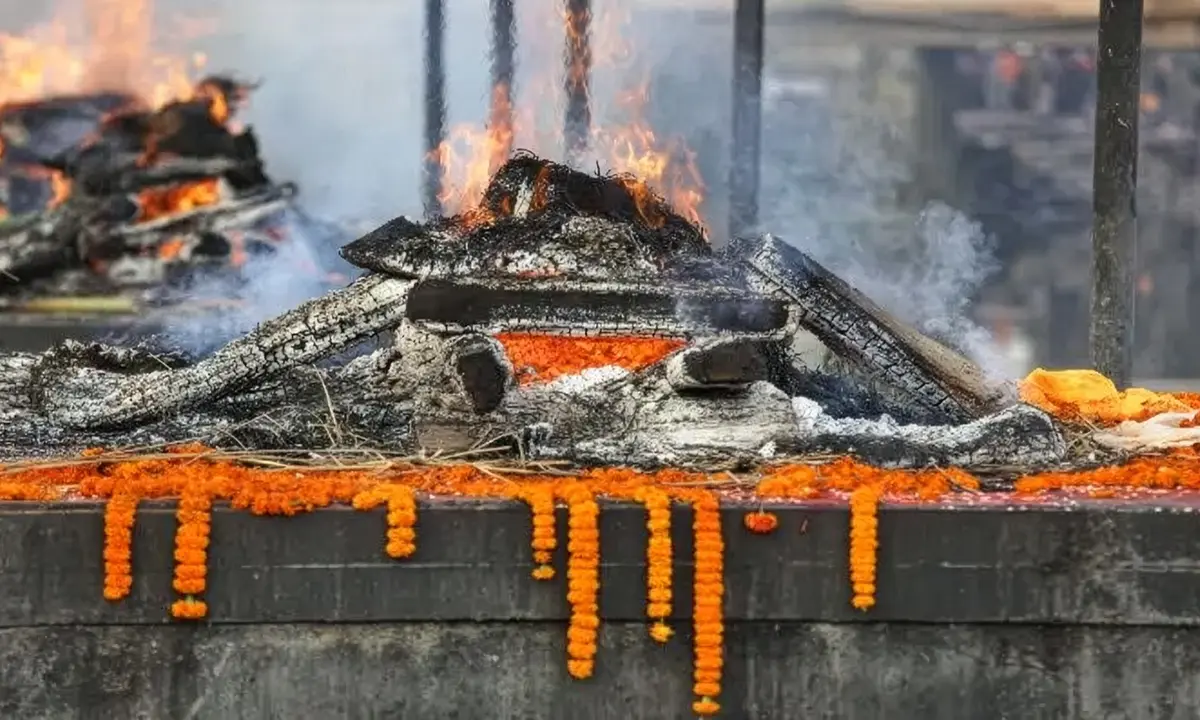
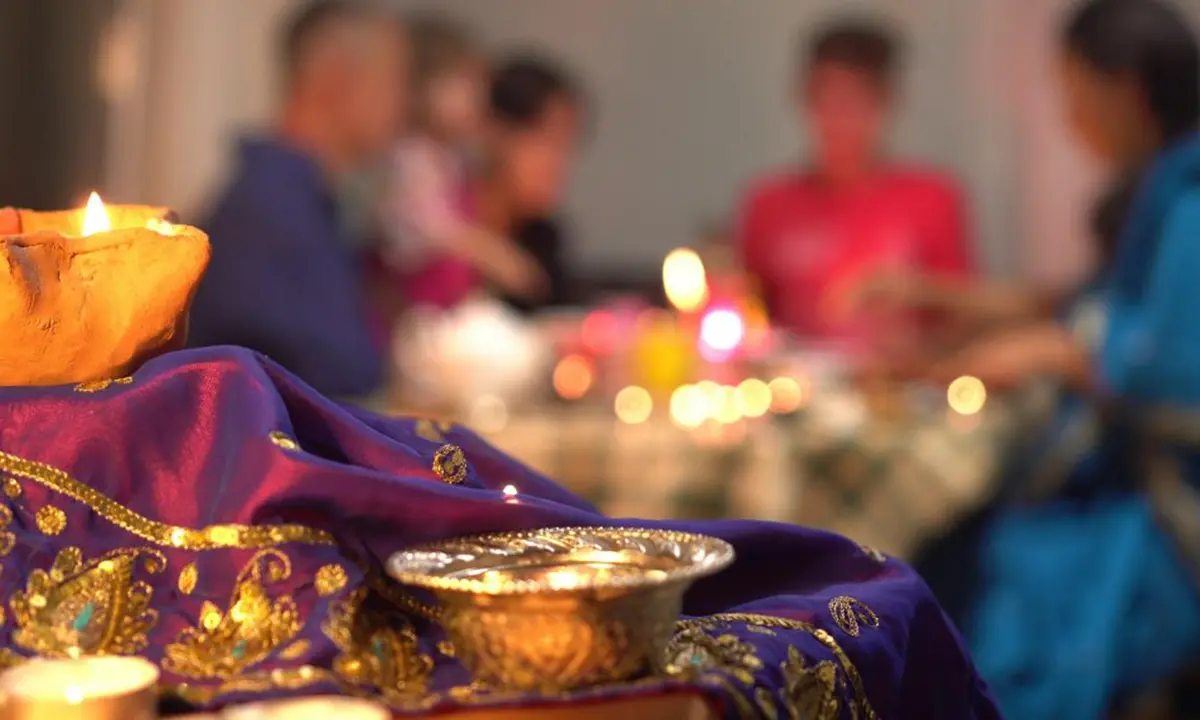
Malayalee Funeral Rites & Kerala Traditions in Selangor, Kuala Lumpur & Malaysia
-
Collecting the Body:
- From Hospital/Home: Transport the body to the family home.
- Legal Requirements: Obtain a death certificate and necessary permits.
-
Preparing the Body:
- Ritual Bathing: Close family members bathe the body.
- Dressing: The deceased is dressed in a white mundu (dhoti) for men and a white saree for women.
- Adorning: Application of sandalwood paste and floral decorations.
-
Wake and Rituals:
- Location: Home or funeral hall.
- Rituals: The body is placed with the head facing north, with an oil lamp near the head.
- Priest’s Role: Hymns and prayers are chanted.
- Offerings: Flowers, incense, and food offerings.
-
Funeral Procession & Cremation/Burial:
- Procession: The body is taken to the cremation or burial site.
- Final Rites: If cremated, the eldest son lights the pyre.
- Ashes: Collected for immersion in a river or sea.
-
Post-Funeral Rituals:
- Mourning Period: Typically 16 days, with daily ceremonies.
- Sanchayanam: Collection of ashes on the 16th day.
- Annual Remembrance: Observance of the death anniversary with prayers and offerings.
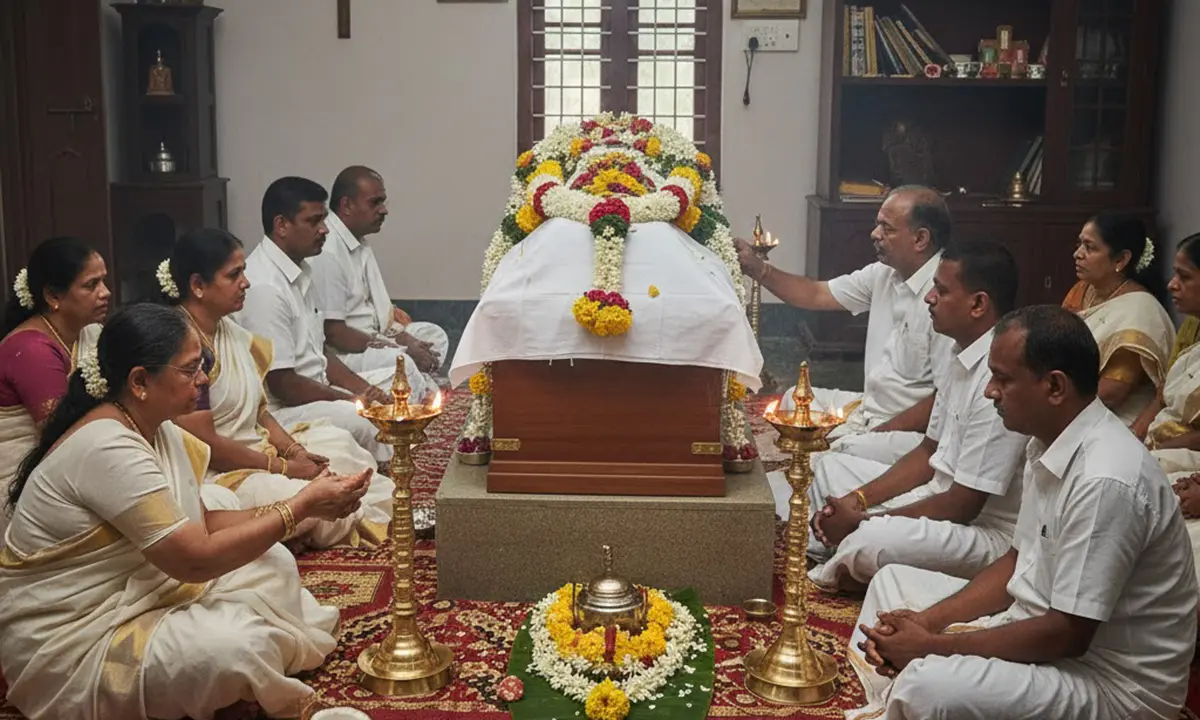
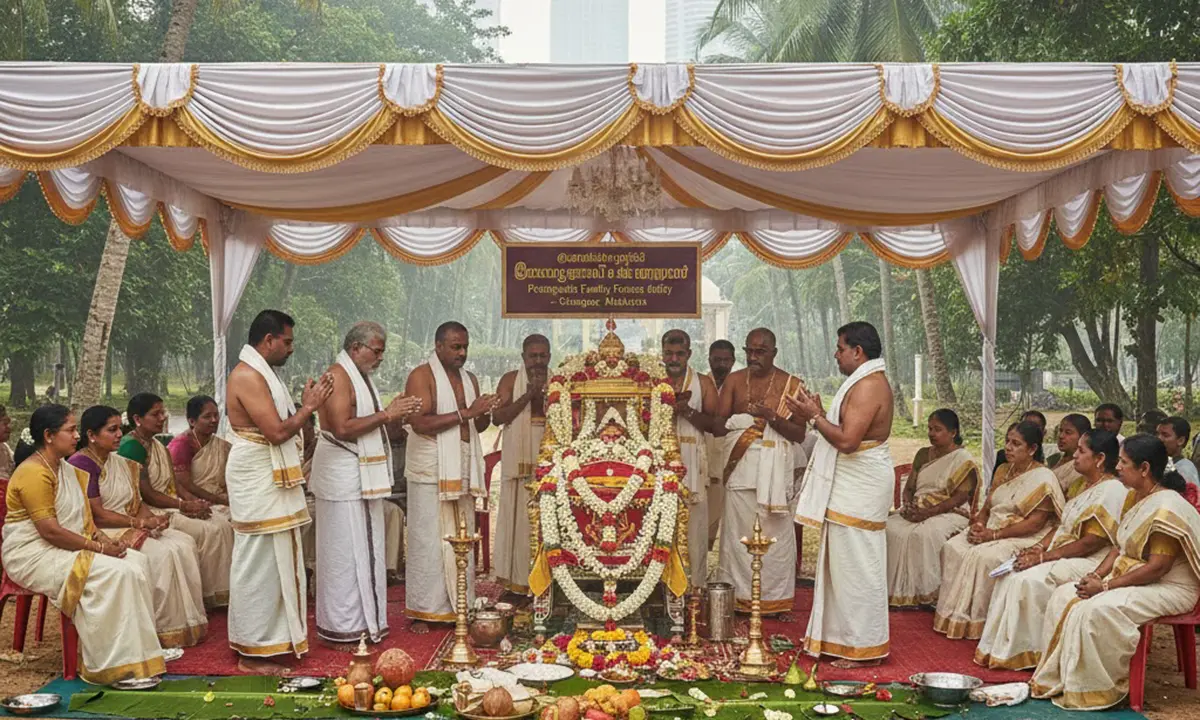
Celonis Funeral Rites & Traditions in Selangor, Kuala Lumpur & Malaysia
-
-
Collecting the Body:
- From Hospital/Home: The deceased is transported to thefuneral homeor to the family residence.
- Legal Requirements: The death certificate and all required permits are obtained.
-
-
-
Preparing the Body:
- Ritual Bathing: Performed by close family members.
- Dressing: The body is dressed in traditional or preferred attire chosen by the family.
-
-
-
Funeral Service:
- Rituals: Celonis funeral customs typically include chanting, lighting candles, and offering prayers.
- Offerings: Flowers, food, incense, and symbolic items are presented.
-
-
-
Cremation/Burial:
- Final Prayers: Conducted at the burial site or cremation ground.
- Procession: The body is taken to the final resting place in a ceremonial manner.
- Ash Immersion: If cremated, ashes are immersed in a sacred or meaningful location.
-
-
Post-Funeral Rituals:
- Mourning Period: Observed according to the family’s customs and traditions.
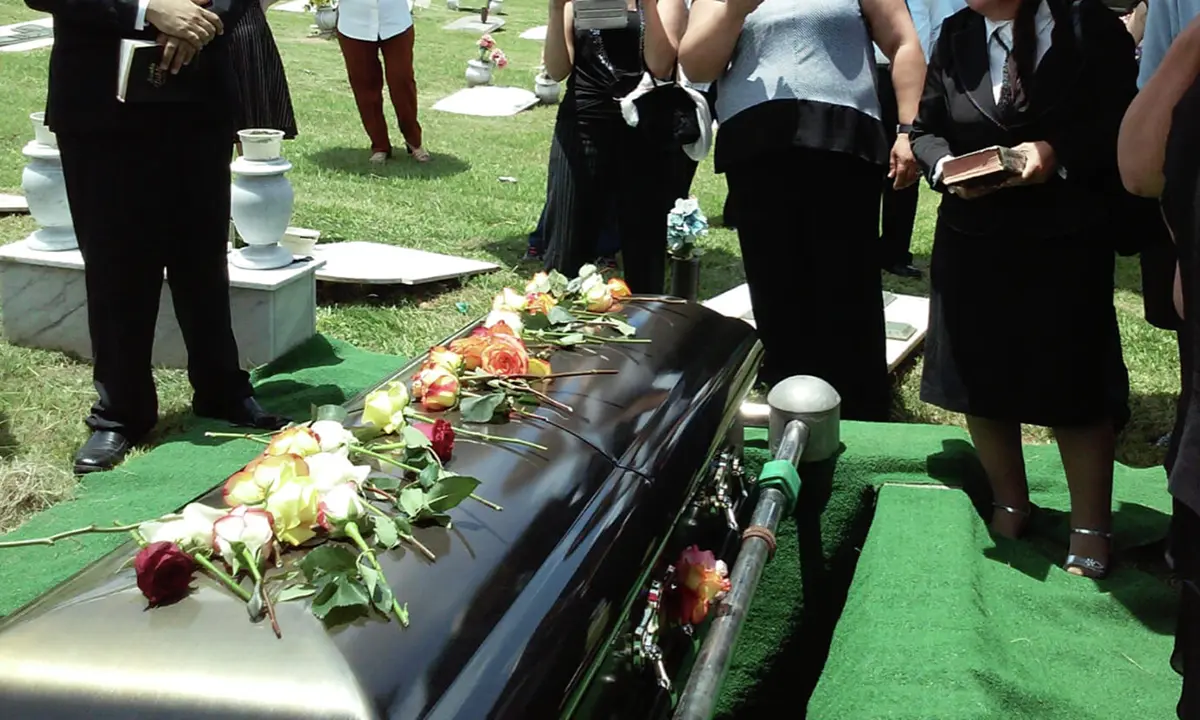
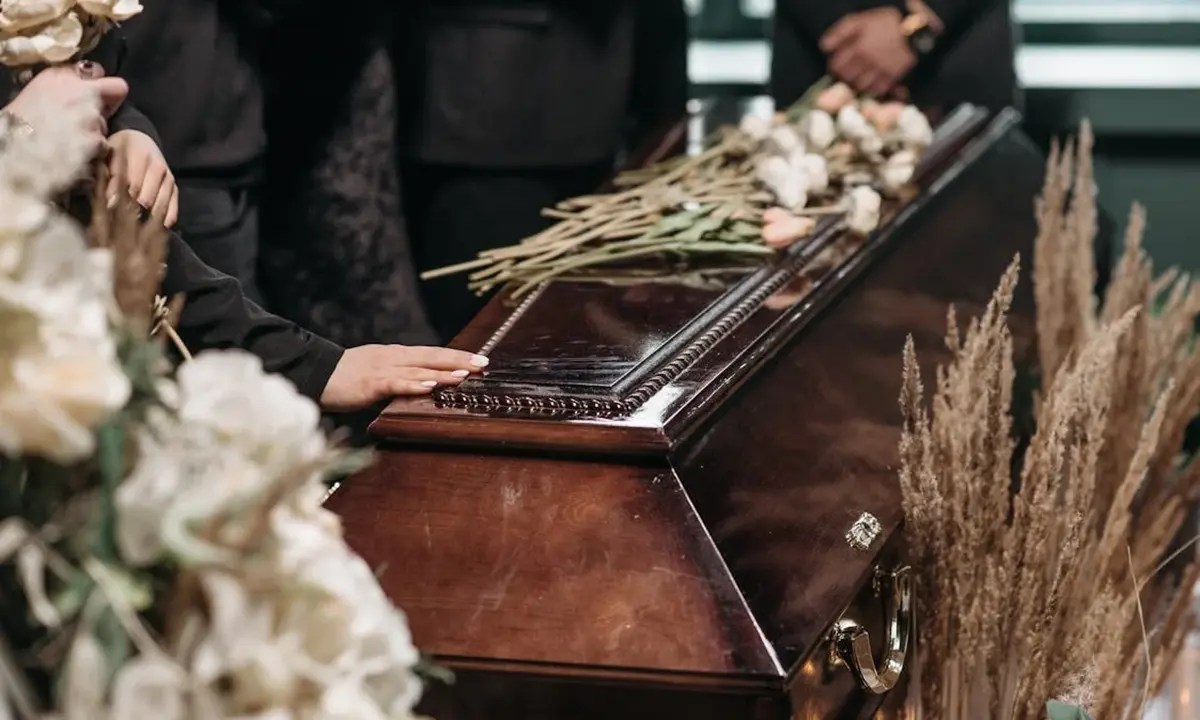
Telugu Funeral Rites & Traditions in Selangor, Kuala Lumpur & Malaysia
Collecting the Body:
- From Hospital/Home: Transport the body to the family home.
- Legal Requirements: Obtain a death certificate and necessary permits.
Preparing the Body:
- Ritual Bathing: The body is washed with turmeric-infused water.
- Dressing: Traditional white attire for both men and women.
- Adorning: Holy ash and sandalwood paste applied to the forehead.
Wake/Viewing:
- Location: Family home.
- Rituals: Vedic mantras are chanted, led by a priest.
- Placement: The body is positioned with the head facing south.
Funeral & Cremation:
- Procession: The body is carried to the cremation ground.
- Rituals: The eldest son lights the pyre.
- Ashes: Collected for immersion in a sacred river.
Post-Funeral Rituals:
- Mourning Period: Lasts 11 days.
- Peddana Ceremony: Held on the 11th day to conclude mourning.
- Annual Remembrance: Special prayers on the death anniversary.
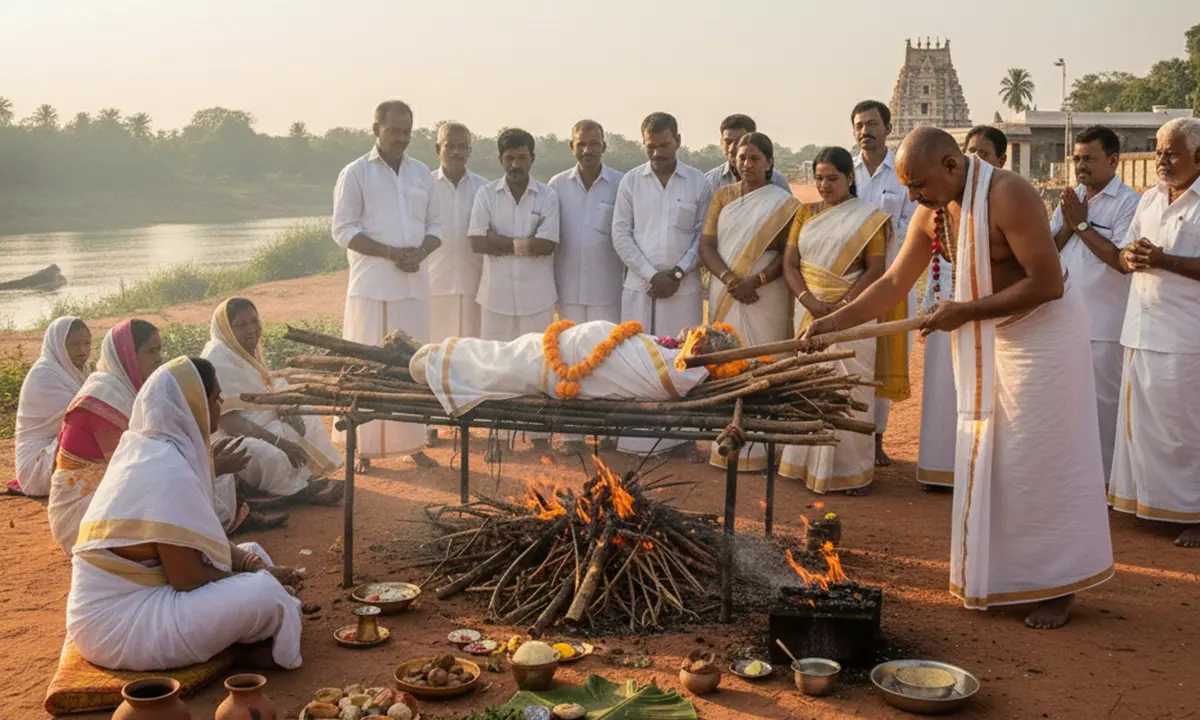
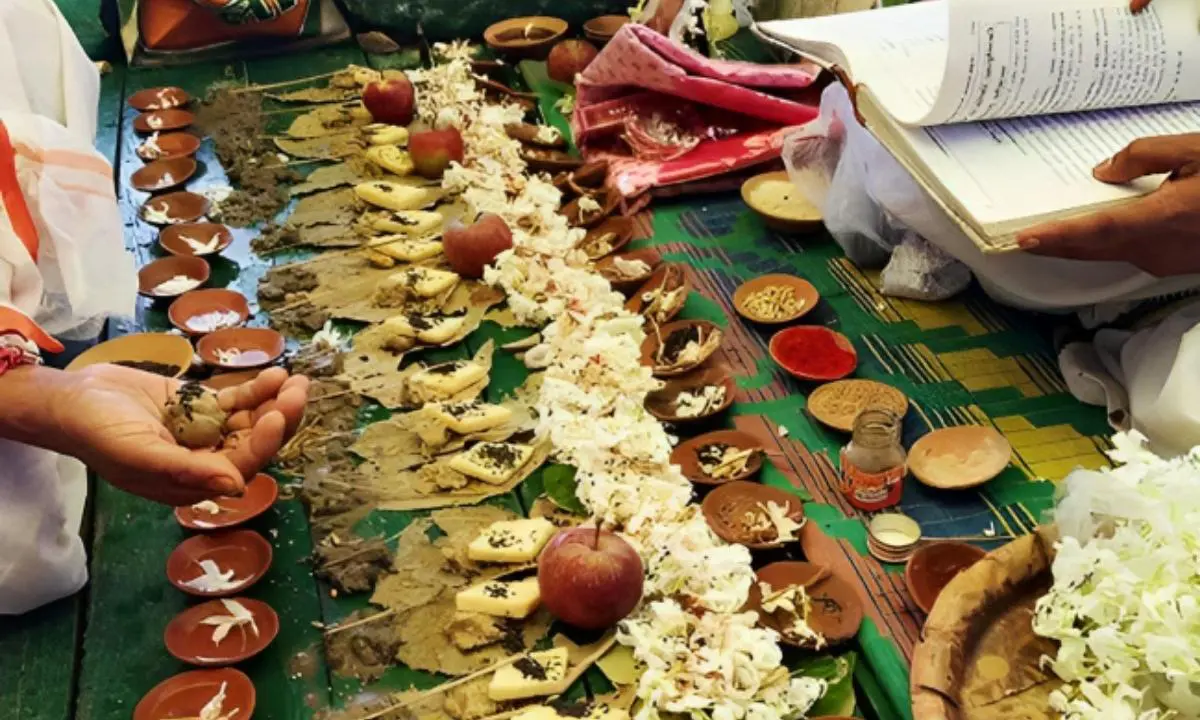
Need Assistance?
Losing a loved one is never easy. At Eternity Funeral Services, we handle the necessary arrangements so that families can focus on mourning and honoring their loved ones.
📞 Call us at: +60179377982 | +60129331462
💙 Rest easy, we’ve got your back.

